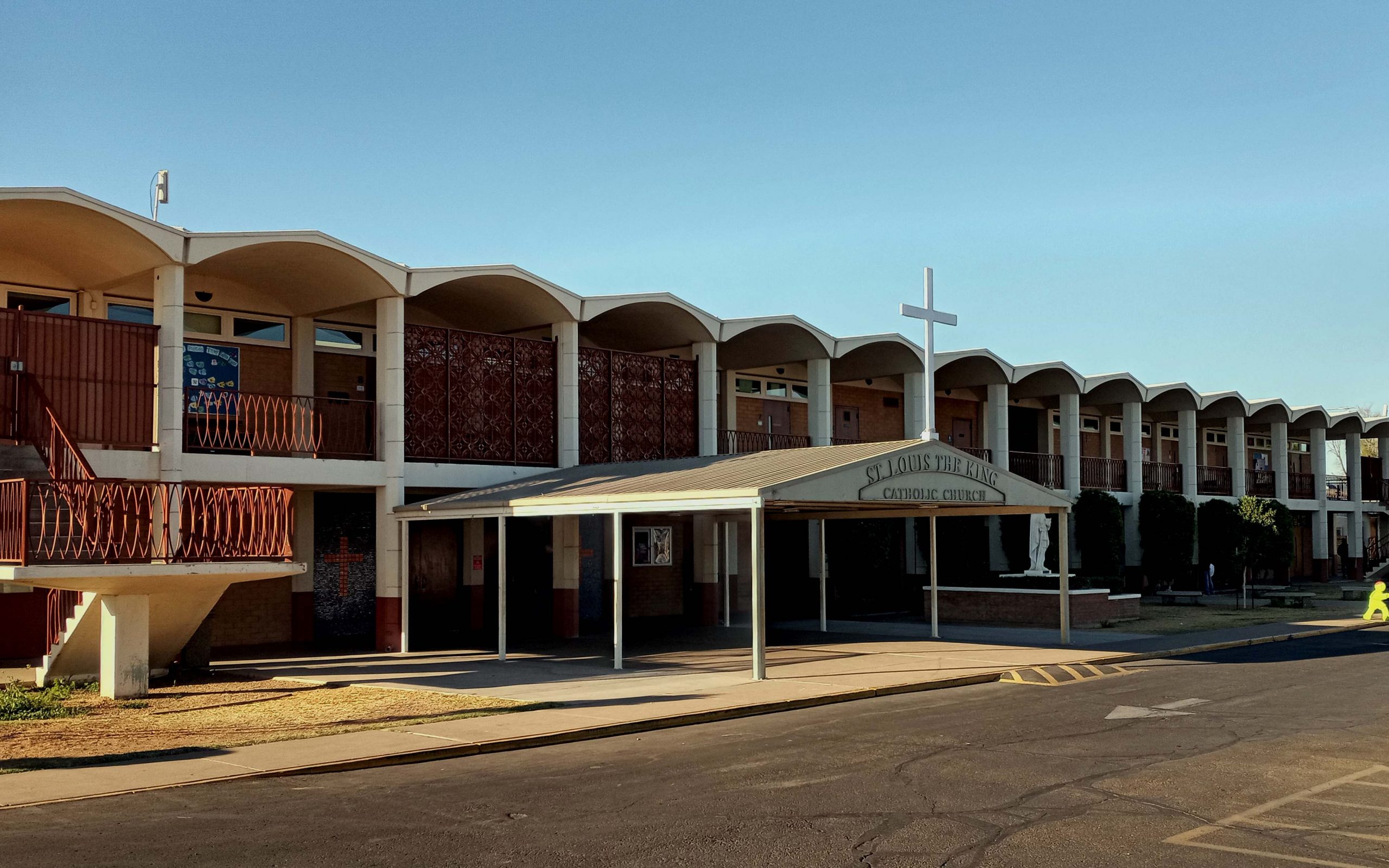Ship of Fools: St Louis the King, Glendale, Arizona, USA
 Ship of Fools: St Louis the King, Glendale, Arizona, USA
Ship of Fools: St Louis the King, Glendale, Arizona, USA
Empty ditties during mass, plus applause for the final hymn, make leaving church a joy
Read the full Mystery Worshipper report here
 Ship of Fools: St Louis the King, Glendale, Arizona, USA
Ship of Fools: St Louis the King, Glendale, Arizona, USA
Empty ditties during mass, plus applause for the final hymn, make leaving church a joy
Read the full Mystery Worshipper report here
Comments
7 — The priest read his sermon from a text but tried not to look like he was doing so. This to me is not the same as preaching.
I don’t understand. Why didn’t the reporter think this isn’t the same as preaching? What would be?
I suppose one ought also to take into account the Saturday Vigil Masses - 5pm in English and 730pm in Vietnamese.
I have no problem with using notes. In fact, a well prepared sermon must almost by definition use notes. For the preacher to take those notes and apply to them all the oratorical skills he can muster -- that to me is preaching. Throw in a little Bible thumping and you've got yourself a sermon.
Whatever you might think of the late lamented Baptist pastor Charles Stanley, he was first and foremost a preacher. His weekly In Touch Ministry TV program is still broadcast. It's a little spooky to hear someone preach who's been dead for almost two years, but that man could preach!
But then, our sermons tend to be around 20 minutes long, and we generally expect depth. It’s a very rare preacher who can preach a coherent, engaging sermon of that length without text or notes, and I don’t want to encounter anyone winging it.
(And fwiw, I found Charles Stanley’s sermons somewhat meh. The style and delivery were okay, but the content was lacking to me. It always seemed to me the sermon came first, with Scripture being pulled in to support the points he wanted to make, rather than the Scripture text coming first and the sermon exploring the text. But my biases may well be showing. To each their own; one size needn’t fit all.)
FWIW, the Church of England has *Books of Homilies*, written for clergy to read out loud in church. They were introduced by Cranmer, revised over many years, and I think the current version dates from around 1860. Anglican clerics will be able to confirm if they're still in use...
The Episcopal Church in the US has its own Books of Homilies - I wonder if it was one of those that Miss Amanda heard read from in her childhood?
But isn't that the difference between a homily and a sermon? Doesn't a homily expound upon scripture, whereas a sermon uses scripture to support moral teaching?
I agree. And in my head a homily is shorter.
We’re back to the recurring discussion of how different Christian traditions view the sermon and what they expect from it. The distinction you mention—a homily expounds upon scripture, while a sermon uses scripture to support moral teaching—is a distinction I’ve only encountered among some Roman Catholics and some Anglicans. It’s a distinction that’s totally foreign to the Reformed tradition.
We would say that “homily” and “sermon” are different words for the same thing, but “homily” carries the connotation of being shorter and consequently often not as “meaty.”
That's how I myself would distinguish the two, although at Our Place the terms are, as it were, interchangeable.
The word "homily" isn't part of our tradition (we say "sermon" or, latterly, "message"). If it does get used, it has a slightly pejorative "feel" to it.
Like @Baptist Trainfan , I didn't simply read it, and did occasionally make slight variations, to make it flow better, or sound more sensible...
Back to the MW Report, and it would be interesting to know if the homilies at the other (non-English) Masses were better. It may be that the preacher at the service in the Report didn't have English as his first language...